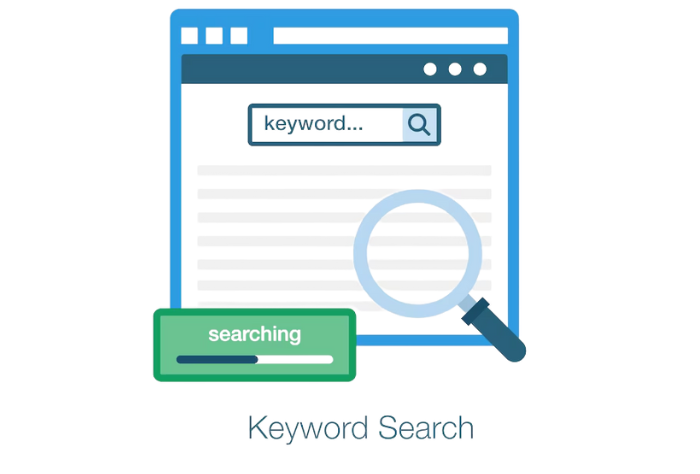Google Ads / Keyword Match Types
Understanding Keyword Match Types in Google Ads
Improve your ad targeting and maximize your ROI by mastering keyword match types in Google Ads.
What Are Keyword Match Types?
In Google Ads, keyword match types define how closely a search query needs to match your keyword for your ad to be triggered.
There are several types of match types, each with its strengths. Broad match, exact match, and phrase match are the main ones.
Keyword match type tools can help you fine-tune your strategy, ensuring better control over your campaigns.

Why Are Keyword Match Types Important?
Keyword match types are essential because they impact both the reach and cost-efficiency of your campaigns.
According to Google, advertisers who use a combination of keyword match types can increase their reach by up to 50%.
In fact, using keyword match types strategically can improve ad relevance, which in turn leads to a higher Quality Score.
This results in lower cost-per-click (CPC) and better overall campaign performance.
Choosing the Right Match Type for Your Campaigns
Choosing the right keyword match type for your Google Ads campaigns is crucial for maximizing efficiency.
Broad match allows for wide reach, but it can also attract irrelevant clicks, resulting in wasted budget.
Exact match, on the other hand, targets only users who search exactly for your keyword, but may limit your reach.
According to studies, ads using exact match keywords see a 25% higher conversion rate compared to broad match ads.


Key Match Types You Should Use
To maximize your Google Ads performance, use a mix of broad, exact, and phrase match types customized to your campaign goals and target audience.
- Broad Match: Broad match allows your ad to show for any search containing your keyword or close variations. It accounts for nearly 70% of all searches on Google.
- Exact Match: Exact match provides the highest targeting precision, showing your ads only when a user searches for the exact keyword or close variations. Ads using exact match have an average CTR (click-through rate) of 12.5%, compared to 3.5% for broad match.
Benefits of Using Different Match Types
Using a combination of broad, exact, and phrase match types allows you to balance reach, relevance, and cost-efficiency, helping you optimize ad performance and maximize ROI.
- Increased Targeting Control: Using exact match means you can control precisely when your ad appears, improving ad relevance and conversion rates.
- Cost Efficiency: According to Google, advertisers see a 20-40% lower CPC when switching from broad match to exact match keywords, making it more cost-effective.


How Keyword Match Types Impact Ad Performance
The performance of your ads can be directly linked to the match types you choose. Keyword match types influence your ads’ visibility, targeting, and budget.
Ads using broad match tend to have a lower conversion rate, but a higher volume of impressions, while exact match ads see a higher conversion rate but a lower number of impressions.
Using a combination of both will help you scale your ads more effectively. In fact, campaigns that use a blend of match types can see a 30% increase in conversions.
Advantages of Using Broad Match Keywords
Here are five reasons why broad match is beneficial:
- Maximum Reach: Broad match ensures your ads are shown to the largest possible audience, increasing visibility by 70% or more.
- Captures Related Searches: According to Google, broad match accounts for 40% of all search queries, capturing searches beyond the exact keyword.
- Suitable for New Campaigns: For new campaigns, broad match can help gather more data to refine your strategy.
- Increased Impressions: Broad match keywords generate more impressions, boosting your brand’s visibility and potential customer base.
- Works Well with Negative Keywords: When paired with negative keywords, broad match can help eliminate irrelevant traffic, focusing your ad spend more efficiently.


Benefits of Using Exact Match Keywords
Using exact match keywords has a higher potential for precision and conversion. Here are three advantages:
- Highly Relevant Traffic: Ads using exact match keywords are shown only to users who are actively searching for your specific product or service, leading to a 25% higher conversion rate.
- Higher CTR: Exact match ads typically have a higher CTR, often up to 12%, compared to broad match, which generally hovers around 3-4%.
- Improved Quality Score: Ads that match search queries exactly are deemed more relevant by Google, improving your Quality Score and lowering your CPC.
Why You Should Use Phrase Match Keywords
Phrase match provides a perfect balance between reach and relevance. Here are three reasons why it’s beneficial:
- Balanced Reach and Relevance: Phrase match allows your ad to appear for queries that contain your keyword in the exact order, providing a balance between broad and exact match.
- Captures Long-Tail Keywords: Phrase match helps you target long-tail keywords, which often account for 70% of search traffic on Google, making them crucial for capturing niche audiences.
- Better Targeting than Broad Match: Ads using phrase match keywords achieve 10% more relevant traffic compared to broad match, while still casting a wider net than exact match.


Setting Up and Managing Keyword Match Types
Here are seven steps to set up and manage keyword match types effectively:
- Understand Your Campaign Goals: Analyze the purpose of your Google Ads. If you’re aiming for brand awareness, broad match may be appropriate. For conversions, focus on exact match.
- Use Negative Keywords: Pairing match types with negative keywords will help eliminate irrelevant queries.
- Test Different Match Types: Experiment with different match types to see which provides the best return on investment.
- Monitor Performance: Keep an eye on metrics like CTR, conversion rate, and CPC for each match type and adjust accordingly.
- Optimize Regularly: Use the data you collect from testing to continually optimize your campaigns.
- Adapt to Trends: Adjust match types based on evolving trends and search behaviors.
- Blend Match Types: Use a combination of broad, phrase, and exact match types to scale your campaigns efficiently.
How Google Ads Match Types Affect Your Costs
Keyword match types have a direct impact on your cost per click (CPC) and ad spend. Here are key insights:
- Broad Match Can Increase CPC: Due to the wider audience, broad match can increase your CPC, especially if irrelevant clicks occur.
- Exact Match Lowers CPC: With a more precise targeting approach, exact match typically reduces the cost per click by up to 40%.
- Phrase Match Offers Cost Efficiency: Phrase match strikes a balance, reducing wasted spend compared to broad match while still providing broader reach.


Managing Keyword Match Types for Optimal Results
Effective management of keyword match types can enhance ad performance. Here are six tips:
- Start with Broad Match: Begin with broad match to gather data, then narrow down using more specific match types.
- Switch to Exact Match as You Gather Data: As you gather more data, switch to exact match for higher conversion rates.
- Optimize for Relevance: Focus on relevance by refining match types over time.
- Use Negative Keywords: Always combine match types with negative keywords to reduce irrelevant traffic.
- Adjust Based on Performance: Analyze the performance of each match type and adjust your bids and targeting accordingly.
- Focus on Conversion Rate: Prioritize conversion rate over impressions when refining your match types.
- Hire A Professional: Google Ads can be tricky and thus professional Google Ads Agency and PPC Marketing Agencies shall be entrusted with the task!
Take Control of Your Google Ads Campaigns with the Right Keyword Match Types
Selecting the right keyword match types ensures that your Google Ads campaigns run efficiently, targeting the most relevant users while avoiding wasted ad spend.
Combining keyword match types effectively can lead to better targeting, higher conversion rates, and lower costs.
Don’t forget to track performance regularly and adjust as needed.